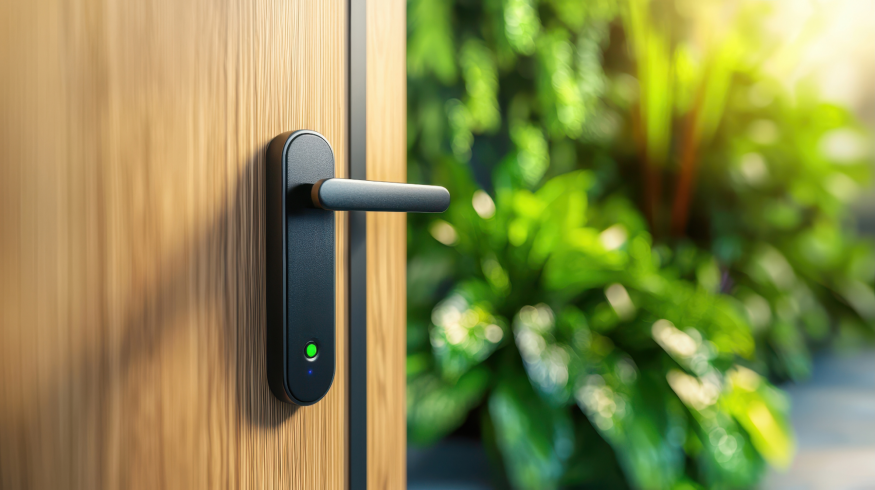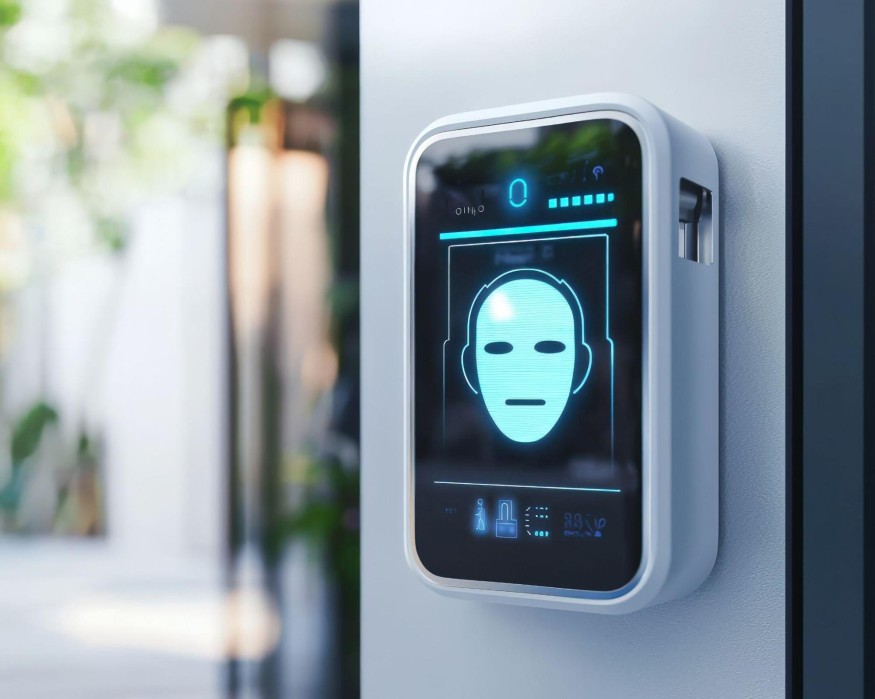
Keyless smart locks are becoming more common in homes and apartments. Many people like them because they don't need to carry keys anymore. They can open their doors using a phone, a code, or even a fingerprint. This makes things faster and more convenient. But even with these benefits, some people wonder if smart locks are truly safe.
This article explains what smart locks do, why people use them, how they protect your home, and what problems they might bring.
What Are Keyless Smart Locks?
A keyless smart lock is a lock you can open without a regular key. Instead, you might use a passcode, your phone, or your fingerprint. Some smart locks connect to an app so you can control your door even when you're not home. Others work with smart home systems like Alexa or Google Assistant.
There are two main kinds of smart locks. One replaces your old lock completely. The other fits over your current deadbolt. Renters often like the second option because it doesn't require changes to the door.
Across neighborhoods and apartment buildings, smart locks for home use are quickly becoming the new industry standard. Many of these locks include smart features like auto-locking, real-time notifications, and guest access options for friends, family, or service workers.
Why People Like Smart Locks
Smart locks offer freedom that regular locks can't. You don't have to keep track of keys. If your hands are full, you can still open the door using a physical button on the lock or with your phone. This can make daily life easier, especially for families with kids.
Many people enjoy the code entry option. Instead of handing out spare keys, you can give each guest a unique code. After their visit, you can delete the code for safety. Some smart locks also support fingerprint recognition, making them even more secure and easier to use.
Smart locks often blend into home decor with a stylish design and perfect finish, making them both functional and attractive. They also offer seamless integration with a smart home security system, allowing homeowners to monitor doors along with cameras, alarms, and other security systems.
What Helps Keep Smart Locks Safe
Most smart locks are built with safety in mind. They use strong encryption to keep your information safe. This means the signal between your phone and the lock is protected from hackers.
Auto-locking is a popular tech feature that helps when someone forgets to lock the door. The lock takes care of it after a set time. Some models also send alerts when someone enters or tries to enter without permission.
Another useful option is fingerprint recognition, which can be more secure than using a simple code or key. These types of digital door locks are harder to trick or bypass.
If a power outage happens, some smart locks have backup batteries or a key option that allows you to unlock the door manually. Checking the product details before buying can help you find these helpful extras.
Problems and Risks to Know About
Even though smart locks are helpful, they aren't perfect. One major concern is hacking. If someone gains access to your phone or home network, they might be able to unlock your door.
Batteries also need to be watched. If the battery dies, the lock may stop working unless it has a backup system. That's why alerts for low battery are so important.
Other issues can come from phone or app problems. If your phone crashes or the app fails, you might have trouble getting inside. Choosing a lock that offers a key option or backup entry can be a smart way to avoid this.
Smart Locks vs. Traditional Locks
Old-style locks don't need electricity or internet. They work as long as you have a key. However, keys can be lost or stolen, and locks can be picked.
Smart locks remove these issues and offer more control. They let you check the lock from anywhere and give you a record of who entered and when. Some people even add a smart lock to an existing lock for extra safety.
Combining a smart lock with a regular deadbolt can give you the benefits of technology along with the simplicity of a standard key.
What to Look for in a Good Smart Lock
Not all smart locks offer the same safety or features. When choosing one, it's helpful to look at the product details closely. Here are a few important things to consider:
- Encryption to keep your connection secure.
- Two-step entry, like using both a code and a fingerprint.
- Battery warnings and backup power options.
- A trusted app that connects to your smart home device.
- Support for seamless integration with your current security systems or smart home security system.
- Backup ways to unlock the door, such as a key option or emergency power.
Reading reviews from other buyers can also help. Look for locks that are easy to use and have good safety ratings.
Are Smart Locks Safe Enough?
Smart locks can be safe if used the right way. They give you more control, remove the need for spare keys, and come with helpful tools like auto-lock and guest access settings.

Still, it's important to stay cautious. Using strong passwords, keeping apps updated, and checking the battery regularly all help keep things running smoothly.
Smart locks work best when paired with smart habits and supported by a complete smart home security system.
Final Thoughts
Smart locks offer keyless entry, smart features, and added convenience, making them a popular choice for modern home security. While risks like hacking or power outages exist, choosing a reliable model and maintaining it well can reduce those concerns. With the right setup, smart locks provide a safe and practical way to protect your home.
© 2026 ScienceTimes.com All rights reserved. Do not reproduce without permission. The window to the world of Science Times.












